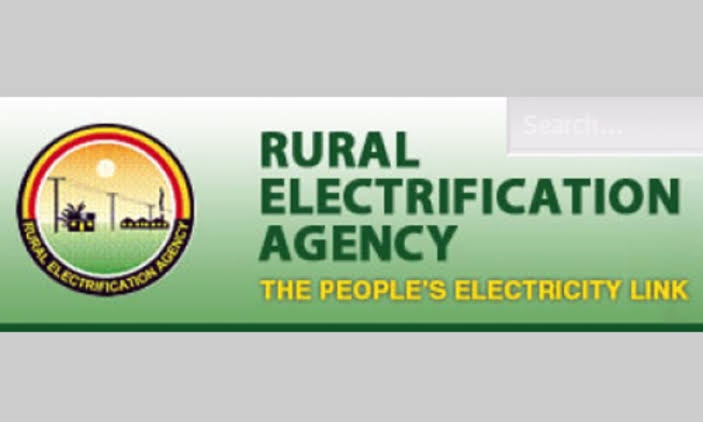The Rural Electrification Agency (REA) has disclosed that it has successfully provided electricity access to over eight million Nigerians who were previously living in darkness. This milestone comes as part of the Federal Government’s broader initiative to close the country’s energy access gap and deliver sustainable power solutions to underserved and rural communities.
According to the agency, the achievement was made possible through multiple electrification models, including the deployment of solar mini-grids, standalone solar home systems, and productive-use energy projects that support local industries. These initiatives were rolled out under collaborative frameworks with private developers, local entrepreneurs, and international partners, ensuring that clean and affordable energy reaches even the most remote parts of Nigeria.

REA Managing Director, Abba Aliyu, explained that rural electrification is at the heart of Nigeria’s development agenda because electricity supply is directly tied to social welfare and economic growth. He noted that in many communities, the arrival of electricity has transformed daily life. Families who once relied on kerosene lamps, candles, or petrol generators now enjoy cleaner, safer, and more reliable power. Beyond household use, the impact has been felt across education, healthcare, and small businesses.
“Electricity access is more than just powering bulbs. It is about changing lives, empowering communities, and enabling small businesses to thrive,” Aliyu said. He emphasized that the REA’s target is to continue scaling up projects until millions more Nigerians are reached, adding that electricity remains a catalyst for national growth.
The agency acknowledged that its progress has not come without challenges. Funding gaps, logistical bottlenecks, and security concerns in rural communities have sometimes slowed down projects. Nevertheless, Aliyu stressed that the REA has remained committed to delivering results by leveraging public-private partnerships and attracting donor support. Programmes such as the Nigeria Electrification Project (NEP), supported by the World Bank and the African Development Bank, have been instrumental in financing mini-grids and off-grid solar systems at scale.
Energy experts view the REA’s milestone as proof that renewable energy technologies offer practical solutions to Nigeria’s electricity deficit. Unlike the traditional grid, which suffers frequent system collapses, transmission losses, and underinvestment, decentralised renewable systems can be deployed faster and are more resilient in isolated communities. With Nigeria ranked among the countries with the largest energy access deficits globally, such approaches are seen as crucial to bridging the gap.
The benefits have already become visible in rural communities. Farmers are increasingly turning to solar-powered irrigation systems, enabling year-round cultivation and reducing reliance on rain-fed agriculture. Local artisans such as welders, tailors, and barbers now operate longer hours thanks to reliable power supply, boosting their productivity and incomes. In schools, students are able to study at night, while hospitals and clinics can refrigerate vaccines and operate medical equipment critical to saving lives.
Furthermore, the projects are contributing to Nigeria’s environmental sustainability goals. By replacing kerosene lanterns and diesel generators with clean energy alternatives, rural households are reducing carbon emissions and improving indoor air quality. This shift also aligns with Nigeria’s international commitments under climate agreements to cut greenhouse gas emissions and transition to cleaner energy.
Despite these gains, the scale of Nigeria’s power deficit remains daunting. Estimates suggest that more than 85 million Nigerians still lack access to electricity, making the country one of the most energy-poor in the world. Stakeholders argue that while REA’s progress is commendable, greater investment and stronger policy support are required. In particular, there are calls for the government to streamline regulatory frameworks, incentivise private sector investment, and improve security in rural regions to allow for faster project implementation.
REA has assured Nigerians that it will continue to innovate in its approaches to electrification. Plans are underway to expand hybrid energy models that combine solar with wind or small hydro systems. Additionally, productive-use energy initiatives are being scaled up to ensure electricity access directly translates into economic empowerment. These programmes aim to provide energy for agro-processing, small-scale manufacturing, and cold storage, thereby strengthening rural economies.
For many Nigerians who have benefited from the REA’s interventions, the story is one of transformation. Villages that once went dark after sunset now bustle with activity into the night. Marketplaces, small businesses, and schools are thriving in ways that were unimaginable before. For women and young people in particular, electricity has opened up new economic opportunities, reduced drudgery, and improved quality of life.
The milestone has also boosted Nigeria’s progress toward achieving Sustainable Development Goal 7, which seeks universal access to affordable, reliable, sustainable, and modern energy. With eight million people already lifted out of darkness, the REA’s achievement stands as a powerful reminder that sustained reforms and targeted investments can bring meaningful change even in the face of challenges.
As Nigeria continues its push toward industrialisation and inclusive growth, bridging the electricity gap will remain central to its success. The REA’s efforts, while significant, represent just one step in a long journey. The hope is that with continued commitment and collaboration, millions more Nigerians will soon join the eight million already empowered by electricity access, making power poverty a thing of the past.
Support InfoStride News' Credible Journalism: Only credible journalism can guarantee a fair, accountable and transparent society, including democracy and government. It involves a lot of efforts and money. We need your support. Click here to Donate
